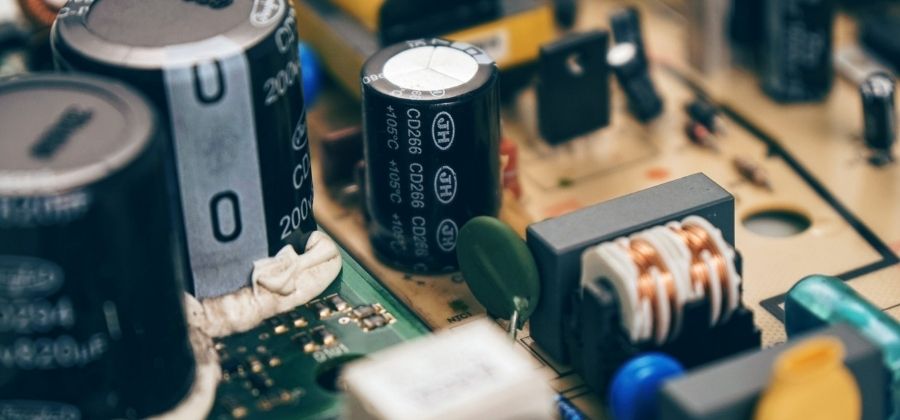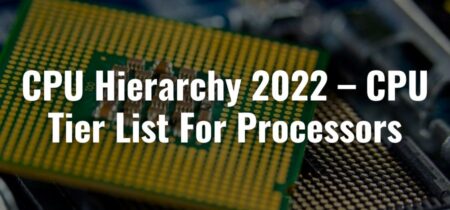Your motherboard is an essential part of your computer. It is a printed circuit board that houses the vital components of your PC, such as the processor, memory, graphics card, communication ports, and connectors. You can find different kinds of motherboards that are available on both online (Amazon) and offline markets, which vary in features and performance. However, as you’re here to answer, can motherboard work without a capacitor?
So, find out… and I assure you, you’ll find the answer to this question.
General overview of motherboard parts:
A motherboard contains many of the basic components that make up the computer itself. These components include:
Processor: The computer’s CPU (central processing unit), which acts as its “brain.”
Memory: Short-term storage for working data and instructions.
Storage devices: Flash memory or hard drives where long-term data is stored.
Connectors: Physical interfaces that allow communication between the motherboard and its attachments. This includes ports for plugging in power, keyboard and mouse, speakers, network connection, video display, wireless connections, and more.
Expansion slots: Slots that can hold expansion cards — chips that provide specific functionality such as graphics capability or additional ports for different kinds of connections. Also called expansion slots or slots.
Jumpers: Wires used to set configuration options on some motherboards without opening them up and changing software settings.
Capacitor: A capacitor is a tiny device that stores an electric charge. Consisting of two metal plates separated by an insulating material called a dielectric, capacitors are usually made up of two metal plates. The plates are linked to each other by wires called leads, and these leads are used to connect the capacitor to other devices in your computer case.
Why is the motherboard capacitor important?

Capacitors are placed in high-risk areas on motherboards for one simple reason: they help reduce electronic noise that may disrupt signals from sensitive components such as microprocessors or memory chips. Without capacitors, these sensitive components could be easily damaged by minor electrical fluctuations caused by other devices in the processor as well as outside sources like AC power lines or mobile phones.
Can motherboard work without a capacitor?
The chipset is a small computer on the motherboard that holds the CPU, memory, and other parts. The motherboard may not work without capacitors because capacitors are used to keep the voltage flowing to the computer. But if you remove the capacitors, the motherboard won’t work, but the CPU may still work. Make sure to remove capacitors if the motherboard doesn’t work because there will be a large chance of burning the computer.
In other words, The power supply unit of any electronic device needs capacitors to store excess electricity so that they can be used back when needed. In the case of the motherboard, capacitors power up the motherboard components, especially the CPU and memory chips. Without it, you cannot boot up your PC.
What are the different types of capacitors used in motherboards?
Well, there are many different types of capacitors that serve different purposes and can be used in different applications. This can affect your personal computer in a number of ways.
Tantalum Capacitors:
These are one of the most common types of capacitors, and they can be found in millions of applications. They are great for high-frequency applications and offer a variety of values, but they can also be used in other situations. The best thing about Tantalum Capacitors is that they are lightweight and compact.
Aluminum Electrolytic Capacitors:
These are often used for larger power requirements and perform very well in temperatures below freezing. They also don’t handle heat very well and need to be kept cool or fail.
Polyester Film Capacitors:
These are some of the most durable and reliable capacitors available today. They work well when used with alternating current (AC) currents and excel at high temperatures.
Electrolytic Ceramic Capacitors:
These come in small packages, which makes them great for high-density areas, like within the computer’s motherboard.
Troubleshooting problems related to Capacitor:
If you are not having any luck fixing your Dell laptop or desktop computer, or any other electronic device for that matter, then it is a good idea to seek help from a qualified technician. However, if you want to give it a try yourself before taking your computer to the shop, consider the following troubleshooting tips.
Troubleshooting Dell Motherboard Capacitor Problems
Before you attempt to troubleshoot Motherboard capacitor problems on your Dell system, make sure you have an anti-static wrist strap. If you do not have one then get one immediately because they can save you from serious injury as well as protect your electronics.
Ask someone to help you if possible when working on any type of computer because they weigh a lot and are more difficult to move than most people think. Also, remember where the screws go after you remove them so that they do not get lost during repairs.
If there is more than one problem with your computer, then troubleshoot the problem that bothers you the most first so that it does not get worse while you work on other issues. For example, if your Dell motherboard capacitor has gone bad and caused screen damage, then troubleshoot the screen first and see if this resolves your issue before moving on to troubleshooting Motherboard capacitor problems.
Frequently Asked Questions
What happens when a motherboard capacitor is failed to operate?
If you feel your computer is performing slower than usual or has no booting, your motherboard capacitor is failed to operate. Some computer freezes and sometimes restarts automatically, all these causes proves that the motherboard capacitor is failed.
What causes motherboard capacitors to fail?
There is an electrolyte inside the capacitor, which sometimes dries, and that biggest reason for capacitor failure.
Conclusion:
Nowadays, motherboards are made with a lot of precision and complicated techniques. So, do not be surprised if your motherboard has capacitors. And I hope you find your answer about; Can motherboard work without a capacitor? Feel free to comment down below if you’ve other queries.

![How To Fix A CPU Cooler Not Lighting Up? [New Guide 2023]](https://www.drtechreviews.com/wp-content/uploads/2022/07/How-To-Fix-A-CPU-Cooler-Not-Lighting-Up-450x210.jpg)

![Why Is My CPU Cooler So Loud? [Facts 2023]](https://www.drtechreviews.com/wp-content/uploads/2022/07/Why-Is-My-CPU-Cooler-So-Loud-450x210.jpg)
![Fix Dual Monitor Lag In Windows [Explanation For Beginners]](https://www.drtechreviews.com/wp-content/uploads/2022/07/Fix-Dual-Monitor-Lag-In-Windows-450x210.jpg)
![Fix A Monitor Randomly Loses Signal [Problems & Solutions 2023]](https://www.drtechreviews.com/wp-content/uploads/2022/07/Fix-A-Monitor-Randomly-Loses-Signal-450x210.jpg)